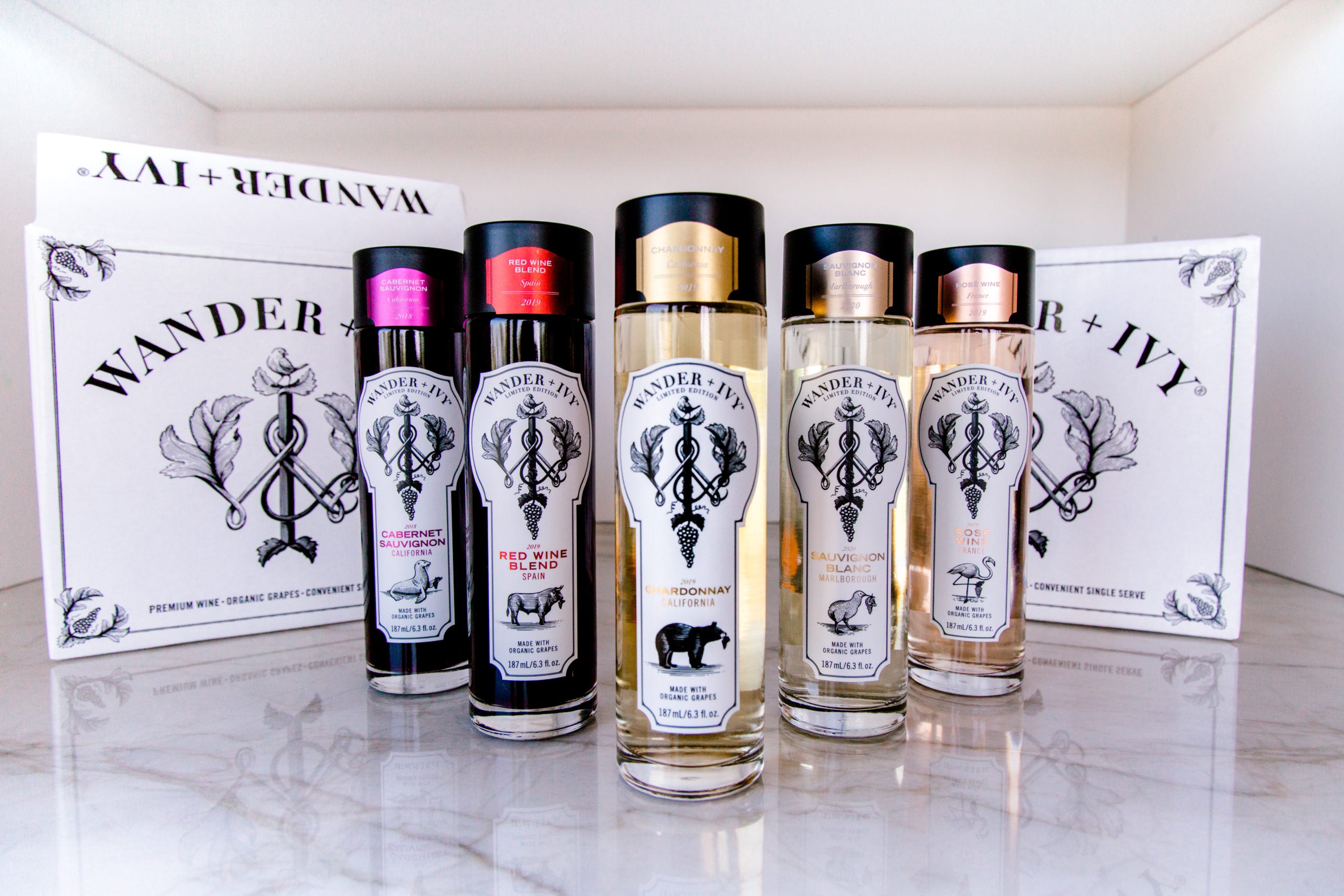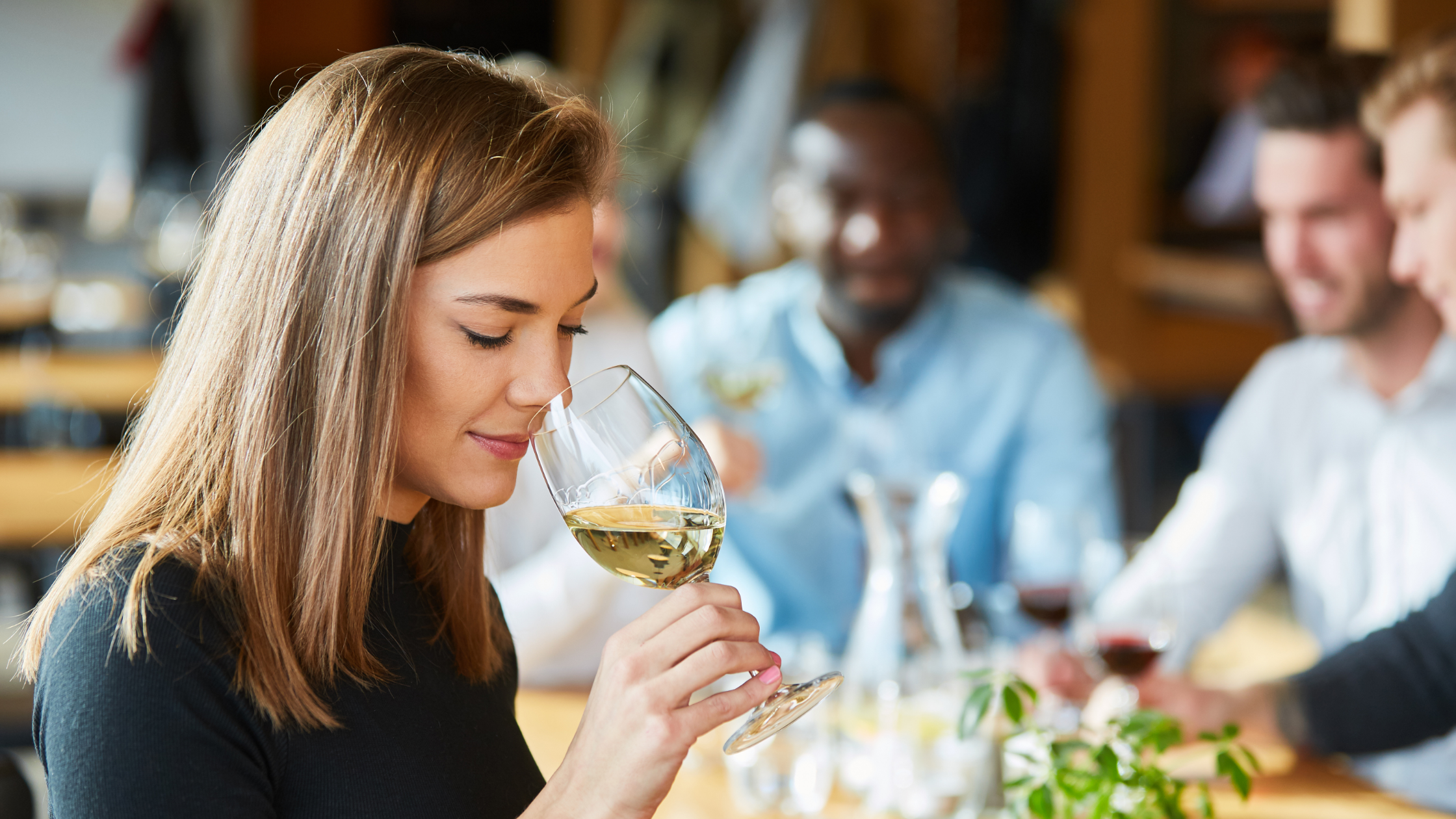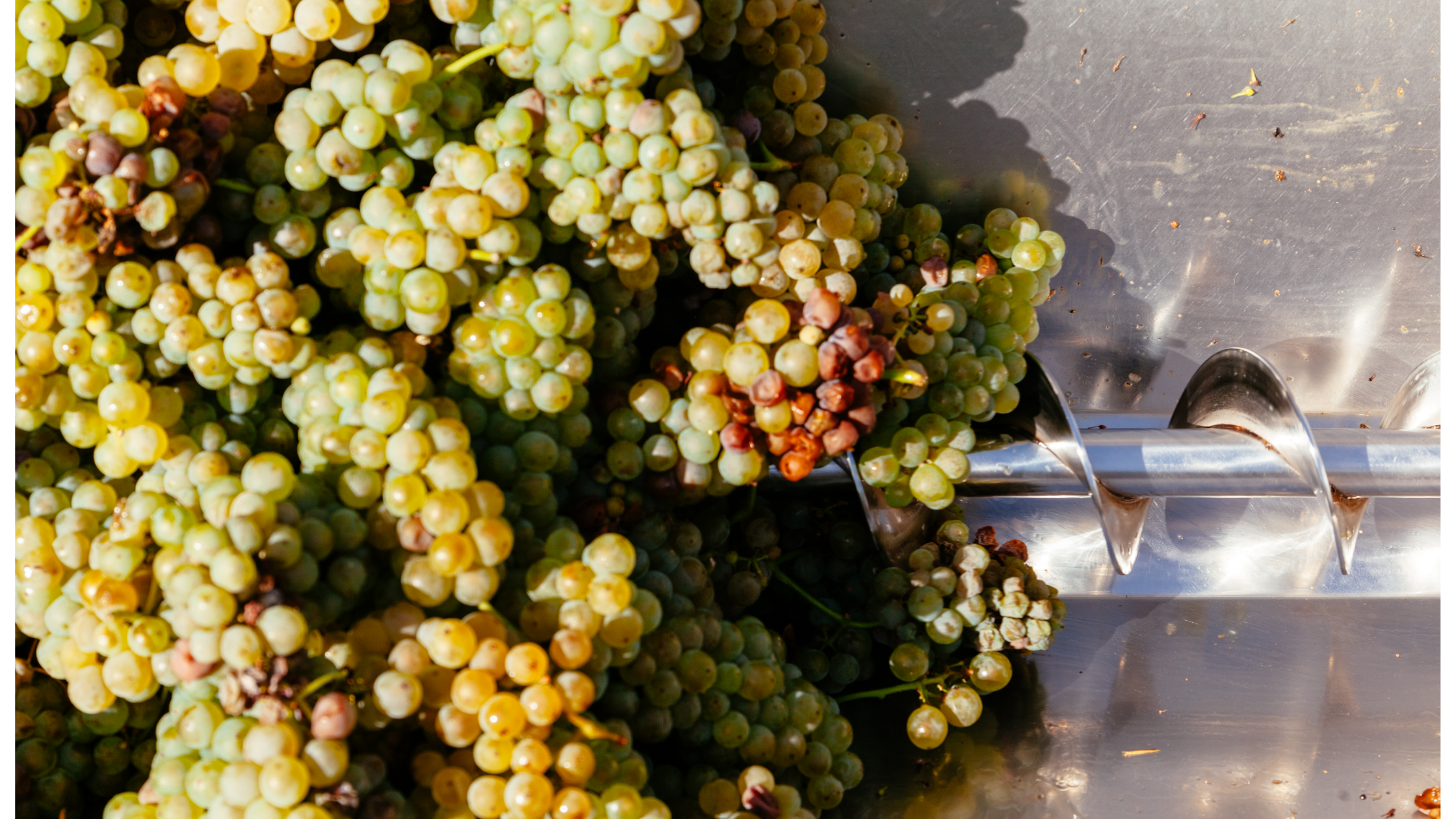
WINE TERMS TO KNOW!
Whether you’re an aspiring Sommelier or a casual wine drinker, having some common wine terms up your sleeve is an impressive party trick and can help make your wine-drinking experience more dynamic. Here’s a list of some of the most common wine terms to know. Read through them, memorize your favorites, and give them a go at your next wine party or gathering!

Wine Terms
Acidity: “Acidity” in wine refers to the presence of tartness or crispness on the palate. This term is often used when describing both white and red wines.
Aeration: “Aeration” in wine refers to the process of exposing the wine to oxygen, typically through decanting or swirling in a glass, to enhance its aromas, flavors, and overall sensory experience by allowing the wine to “breathe”.
Appellation: "Appellation" in wine refers to a legally defined and protected geographical region indicating the origin of grapes used in winemaking and often reflecting specific characteristics of the wine related to its terroir.
Blend: Multiple varieties blended together! For example, Wander + Ivy’s Red Wine Blend is a blend of Bobal and Merlot grapes.
Body: "Body" in wine refers to its perceived weight and texture in the mouth, influenced by factors such as alcohol content, grape variety, winemaking techniques, and aging. Wines with a full body (often red wines, like Cabernet Sauvignon) typically feel rich, dense, and substantial, while those with a lighter body (often white wines, like Rosé) may feel more delicate and less viscous on the palate.
Bouquet: We’re not talking flowers here. "Bouquet" refers to the complex array of aromas that develop in a wine as it ages, often encompassing a combination of fruity, floral, herbal, and spicy notes.
Cuvée: "Cuvée" refers to a specific blend or batch of wine, typically selected for its quality or distinct characteristics, often indicating a higher standard or special production.
Decanting: "Decanting" is the process of pouring wine from its bottle into a separate container, typically a decanter, to separate it from any sediment and allow it to aerate, enhancing its flavor and aroma.
Dry: "Dry" refers to a wine with minimal residual sugar, resulting in a lack of sweetness and a predominantly crisp and tart flavor profile. All Wander + Ivy wines are “dry”.
Earthy: "Earthy" describes the characteristic aroma and flavor notes in wine reminiscent of soil, forest floor, or other natural elements, often associated with terroir-driven wines.
Fermentation: "Fermentation" in winemaking refers to the biochemical process where yeast converts sugars in grape juice into alcohol and carbon dioxide, crucial for producing wine. More on that here!
Finish: One of our favorite parts of tasting, the finish! This refers to the lingering taste and sensations experienced in the mouth after swallowing, indicating the wine's overall quality and complexity. “Oh wow that had a really long finish”, you may say when the wine flavor stays in your mouth for a long time. Additionally, new flavors can emerge on the finish!
Fortified: "Fortified" wine is a wine to which a distilled spirit, typically brandy, has been added, increasing its alcohol content and often resulting in a sweeter and more robust flavor profile. Some examples of fortified wine include Port, Madeira, and Sherry!
Fruity: "Fruity" in wine refers to a prominent aroma and flavor profile characterized by the presence of ripe, fresh, or cooked fruit notes, such as berries, citrus, or tropical fruits.
Horizontal Tasting: "Horizontal tasting" involves sampling wines from the same vintage or category but produced by different producers, allowing for a direct comparison of their characteristics, quality, and styles.
Highly recommend it for a night in with friends!
Jammy: "Jammy" describes a wine with an intense and ripe fruit flavor profile reminiscent of jam, often with a syrupy texture and perceived sweetness. This is often used for red wines and more of a high-level industry term, so you’ll get extra street cred for using this to describe a cooked fruit-forward wine.
Magnum: No, it's not what you think…
"Magnum" refers to a large bottle size in wine, typically holding the equivalent of two standard 750ml bottles, often associated with aging potential and special occasions.
Meritage: "Meritage" denotes a Bordeaux-style blend of red or white wines made in the United States, emphasizing quality and craftsmanship while adhering to specific blending guidelines set by the Meritage Alliance. Red Meritage is a blend of two or more of the red Bordeaux varieties – Cabernet Sauvignon, Cabernet Franc, Malbec, Merlot, and Petit Verdot. White Meritage is a blend of at least two of three specific white Bordeaux varieties – Sauvignon Blanc, Semillon, or Muscadelle du Bordelais.
Minerality: "Minerality" in wine refers to the perceived taste or aroma reminiscent of minerals, rocks, or soil, often associated with wines grown in certain terroirs and contributing to their complexity and sense of place.
Oaked: "Oaked" refers to a wine, like our Wander + Ivy Chardonnay, that has been aged in oak barrels or on oak chips in stainless steel tanks, imparting flavors such as vanilla, spice, and sometimes a creamy texture to the wine.
Oxidation: "Oxidation" in wine occurs when exposure to air causes chemical reactions that lead to undesirable changes in flavor, color, and aroma, often resulting in a loss of freshness and vitality. However, controlled oxidation is how some of the fortified wines we discussed, like Madeira and Sherry, are made.
Sediment: "Sediment" in wine refers to solid particles that settle at the bottom of the bottle over time, consisting mainly of tannins, pigments, and tartaric acid crystals, which can affect the wine's texture and appearance when poured.
No need to be nervous if you see sediment, it likely means the particular wine went through less processing during the winemaking process. In fact, in a lot of really expensive wines, you will see sediment.
Sweet: "Sweet" refers to a wine with noticeable residual sugar, imparting a noticeable sweetness to its taste profile, often balanced with acidity.
Tannins: "Tannins" in wine are natural compounds found in grape skins, seeds, and stems, contributing to a wine's structure, bitterness, and astringency, often perceived as a drying sensation in the mouth.
Tartrates: Also known as “wine diamonds”, "tartrates" in wine are harmless crystalline deposits that form at the bottom of bottles due to the precipitation of tartaric acid during the winemaking process, often mistaken for glass shards but indicating minimal intervention in the wine. These diamonds usually occur in minimally processed or superaged wine!
Terroir: "Terroir" in wine refers to the unique combination of environmental factors such as soil, climate, topography, and grapevine genetics that influence the character and quality of a wine, giving it a sense of place. As an added fun fact, this term is also used for cheese and coffee beans.
Varietal: You may be asked, “What kind of varietal do you prefer?”. At Wander + Ivy we use this term often. This type of question is essentially asking “What kind of grape do you like?” Interestingly, the US and Europe term their wines very differently. In the US, wine will oftentimes be termed based on the varietal. For example, a Cabernet Sauvignon refers to the grape type. While in Europe, they will term their wine based on region. For example, a Red Bordeaux Blend refers to the Bordeaux region.
Vertical Tasting: "Vertical tasting" involves sampling multiple vintages of the same wine from a single producer, allowing for a comparison of how the wine's characteristics evolve over time. In this tasting, you can get a unique sense of what a growing season does to a grape! Give this one a try too!
Vintage: It’s not just “old cool clothing”, though vintage Chanel certainly sounds chic.
"Vintage" in wine refers to the specific year in which the grapes used to produce the wine were harvested, influencing its flavor, aroma, and aging potential due to variations in weather conditions and grape ripeness.
And, that is a wrap on Wander + Ivy Wine Terms! What new wine-tasting terms did you learn from this series? Did we miss any terms you love to use? Let us know!
Shop all of our single serve wines made with organic grapes on our online wine shop.


